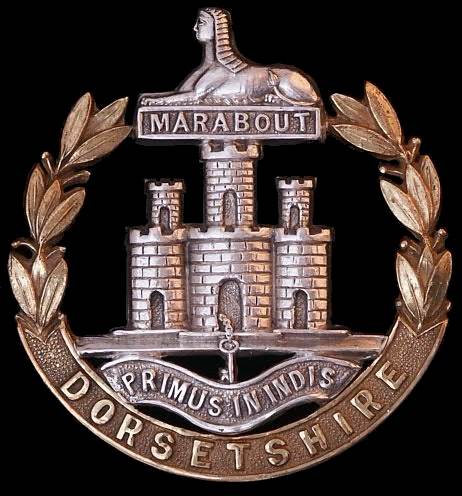
Claude Archibald John Henry Warren

Private 20103
then
Dorsetshire Regiment
5th Battalion
Lance Corporal 19482
 |  | |
| Somerset Light Infantry Private 20103 then Dorsetshire Regiment 5th Battalion Lance Corporal 19482 | ||
| Killed in action, 29th September 1918 |
Claude Warren's Parents | ||
|
Claude Warren was the
son of John Warren and Emma Jane (née Andrews). John Warren Claude’s father was born and grew up in Templecombe, Somerset. John Warren’s
father was an agricultural labourer and his mother was engaged in the
glove-making trade, which was a sizeable industry in south Somerset at that
time; even small villages sometimes housed a ‘glove factory’, where women
turned the soft sheep’s leather – usually a by-product of the local wool trade
– into fashionable gloves. John Warren himself was employed on the railways. In 1879,
the following report appeared in the news: Bath Chronicle and Weekly Gazette - Thursday 30 October 1879 TAUNTON ASSIZES, YESTERDAY Thomas Gibbs & James Smith, railway shunters, and John Warren,
number taker, were charged with stealing six bottles of wine, the property of
the Somerset and Dorset Railway Company, at Templecombe, on the 6th of
September. The two first pleaded guilty, and Warren, after trial, was found “Not
Guilty". Gibbs and Smith were sentenced to nine months' each. A ‘number-taker’ was employed by a railway company to
monitor the use of its equipment or rolling stock by other companies. Railway
companies frequently used each others’ equipment by mutual arrangement and
number-takers made notes of observed/actual usage to compare with the arrangements made,
thus enabling clerks to balance companies’ claims against each other for payment. By 1881, however, when John was 20 years old, he had moved
to Chelsea, lodging at the address “5, D Street, Hans Town”. Hans Town was what
is now known as Kensal Town and named after the developer who also developed
the area south of Knightsbridge (effectively behind Harrod’s), Hans Sloane (his
name is also commemorated there in numerous addresses such as Hans Place, Hans
Crescent, and Sloane Square). Kensal Town (Queen’s Park) was laid out in a grid
system, with numbered avenues and lettered streets. ‘D Street’ later became Droop
Street.
Droop Street, Queen's Park, NW London John’s occupation was given as ‘platelayer’. This means he
was a railway maintenance worker. He would have walked the tracks, inspecting
rails, sleepers and points, carrying out basic maintenance, such as greasing
points, or ordering more extensive remedial work where this was needed. In 1883, John’s father (also John) died, as reported in the
newspaper of the time: Western Gazette - Friday 28 September 1883 TEMPLECOMBE Sudden Death. Mr. Muller held an inquest at the Blue Boar Inn, on Friday, on the body
of John Warren, labourer, 64, who died suddenly on the 20th Sept.
From the evidence it appeared that the deceased was in his usual health on the
previous Wednesday. He returned home from his work about half-past seven in the
evening, had his supper and went to bed at 10 o'clock. When his wife went to
bed, about half-past 12 o’clock, she spoke to him, but he did not complain that
was unwell. About half an-hour afterwards she heard him breathing heavily; she
spoke to him, but he made no reply. She at once got a light and lifted him up,
when she saw he was very pale. She bathed his face and hands with cold water,
but he died immediately. The Coroner having summed up the evidence, the jury
returned a verdict of “Died suddenly, probably from an apoplectic fit”. We know from a couple of sources that John Warren headed north shortly after this to live in South Yorkshire. It is likely that he moved in connection with his work on the railways. Emma Andrews Claude’s mother,
Emma Jane Andrews, was born in Moordown, now a suburb of Bournemouth, but at
that time it was a village on the edge of the Hampshire Downs heathland. Her
father was a wheelwright and carpenter. By 1881 she had left her rural origins
behind and was in service in Blackheath, in South-East London, at an address in
Lee Road. The head of household was a stationer called William Stephens. 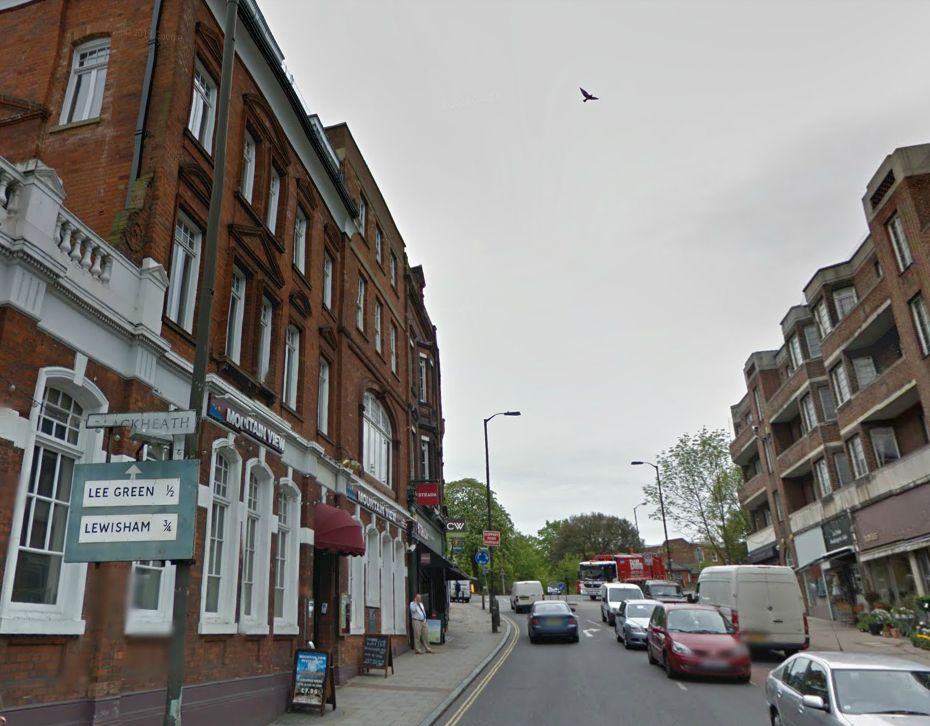 Lee Road, Blackheath It is not known how John Warren and Emma Andrews met. They
may have met in London (although they lived a long way apart), or perhaps Emma
took a position in South Yorkshire and they met there. They were married in Sheffield
in 1886. | ||
The Warren Family |
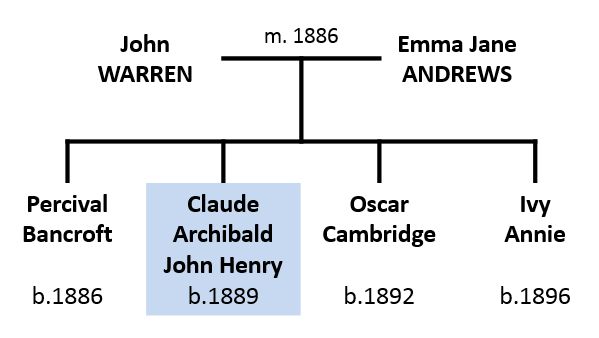 |
|
The first child, Percival, was born in Doncaster in 1886. Claude was the second child, born in 1889. The 1891 census shows the family (with the two eldest children) living at Townsend Cottages in Henstridge, with John listed as a railway clerk. ‘Townsend’ was at the southern end of Henstridge. It is not known whether the exact cottages still survive; there is a new development in this area called Townsend Green. |
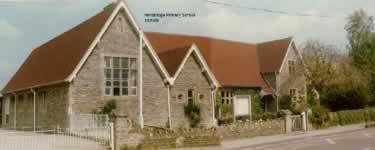 | ||
|
The village school in Henstridge, where Claude would have started his schooling
before the family moved to Bath. |
|
The Bath Directories show the family living in Bath from
1899, when Claude was 10 years old,
so it is possible that he only attended South Twerton School for a year or two.
Although we know from the report of a 1903 prize-giving that he also attended
the ‘continuation school’, which aimed to prepare school leavers for trades.
The family’s address in 1899 was 10 South View Road and they moved in 1900 to 1
Claude Terrace (appropriately named!). Set back from Claude Avenue, Claude Terrace is directly next to
the S&D Railway on which Claude’s
father worked. |
 | ||
|
GWR records survive and show Claude’s brother Percival |
|
In 1908 Percival married Lottie Jewell, the sister of Arthur
Jewell, another of the names on the South Twerton School WW1 plaque! Percival
and Lottie were married at Bath Register Office and lived subsequently at 45
Lorne Road. Claude became an uncle
in 1909 when Percy & Lottie’s daughter Gladys was born. In 1910 the Warren family – with Claude still living at home – moved to 43 West Avenue. We know from the 1911 census (when Claude was 22) that he had begun work in the bookbinding trade. 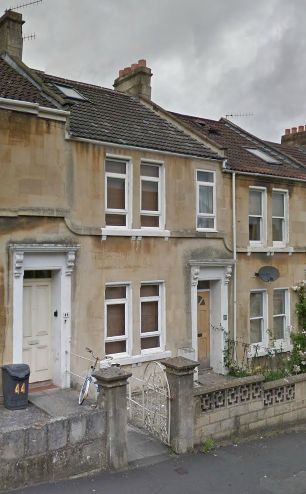 43 West Avenue Claude’s younger
brother, Oscar, followed his father onto the railway in 1908 when he
joined the
Midland Railway. The Midland railway served Bath into Green Park
Station, where he began his career. This took him to Derby in 1910 and
in 1911 (age 18) Oscar was
working in Tamworth, Staffordshire, and boarding in Kettlebrook,
Tamworth, with
the family of a railway signalman. |
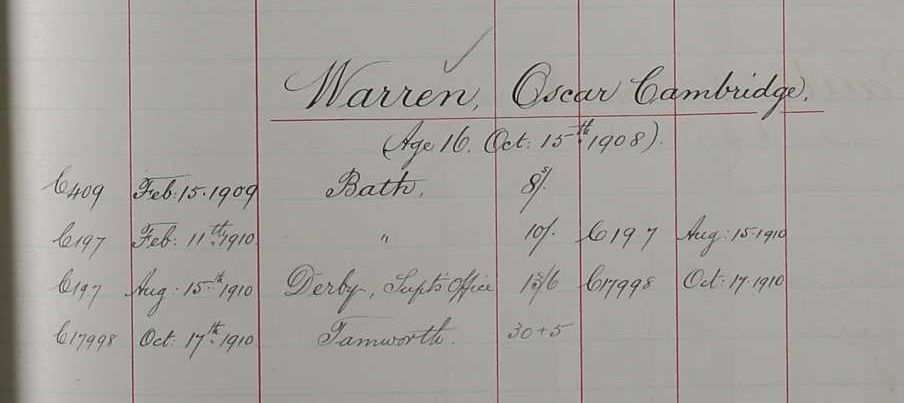 | ||
|
Oscar Warren’s entry in the Midland Railway employment records, showing
his various appointments and pay levels |
|
As for Claude’s
younger sister Ivy, we know that she attended a fete put on in July 1911 by
Twerton Co-operative Society on the Drill Hall Field (bottom of Brougham Hayes,
now Holiday Inn site). After being led from Lyndhurst Road to the venue by the
marching band of the Somerset Industrial School (buildings now the home of
Hayesfield Lower School), a concert tea was held, followed by various
competitions. Ivy won first prize in the ‘Spoon Polishing Competition for
Girls’! |
Claude Warren in WW1 | ||
Somerset Light Infantry, then the Dorsetshire RegimentWe know that Claude served first in the SLI before transferring to the 5th Dorsets (we believe in October 1916). For details of this, see the Percy Ware page. On joining 5th Dorsets, he would have been united with Percy Ware and Harold Carless; both of whom died on the same day in Jaunary 1917. By the time of his death in September 1918, Claude had attained the rank of Lance-Corporal. We need to do more research into his military career. We know that the 5th Dorsets took part in the 'last 100 days' and spent time attached to the Canadian Corps. They moved through Canal du Nord, Haucourt, Cambrai, Valenciennes, Sebourg finishing the war close to Mons. | ||
Claude Warren's Death | ||
| Claude
died just six weeks from the end of the war. In late September 1918, he
was serving with the 5th Dorsets, having transferred to that unit in
October 1916. The website of The Keep military museum (museum of the Dorsetshire Regiment in Dorchester) states that: After
ten months holding the Loos salient further south, in late September
and October 1918 the 5th Dorsets played a part in the final rapid
advances that led to the Armistice. They achieved particular
success in a fiercely opposed attack north-west of Cambrai, which cost
relatively few lives although enemy shelling killed their Colonel,
Padre and Medical Officer.
Further details were given by helpful members of the team at The Keep museum during a visit there in 2017. They provided access to a regimental history which shows: The 5th Dorsets spent a quiet day [on September 28th] but in the evening they relieved the Northumberland Fusiliers in the front line, which they had advanced during the day nearer to the Sensée (river). The 5th promptly sent out patrols forward, which found Aubencheul strongly held, considerable resistance being encountered and a dozen casualties incurred; further to the west, however, more posts were established on the banks of the Sensée. We know that Claude Warren was killed in action on September 29th. The report continues: Next morning (September 29th) more patrols were pushed out along the Sensée, drawing much machine-gun fire from the opposite bank and finding all bridges destroyed. Against Aubencheul itself a more serious effort was made by 'B' Company, supported by 'D'. Unfortunately, at 12.35pm, ten minutes before the attack was to start, a message was received postponing the operation. At 12.45pm however, the barrage came down [this means there was shelling to provide cover for the attack], and shortly afterwards a message came through cancelling the postponement and ordering the attack to go on as arranged. At 1.12pm, therefore, after the barrage had already lifted, 'B' went forward but was held up by heavy machine-gun fire from just west of Aubencheul. Advanced posts were nevertheless established south-west of the village and less than 20 casualties were incurred, includnig Lieut. McCall wounded. While we do not know which Company Claude Warren served in, it is probable that the above passage describes the action in which he was killed. As for Claude’s
brothers: Percival and Oscar may have been exempted from military service by their work
on the railways. We know that Percival purchased a house in St Kilda’s Road in
1915 and was listed as a GWR parcel porter at that time. | ||
Burial | ||
| Claude Warren is buried in Chapel Corner Cemetery in Sauchy-Lestree, France. From CWGC: Sauchy-Lestree
was captured by the 56th (London) Division on 27 September 1918, and
the cemetery was made and used by fighting units during the following
five weeks. It contained 50 burials at the Armistice, and others were
then added from the surrounding battlefields
| ||
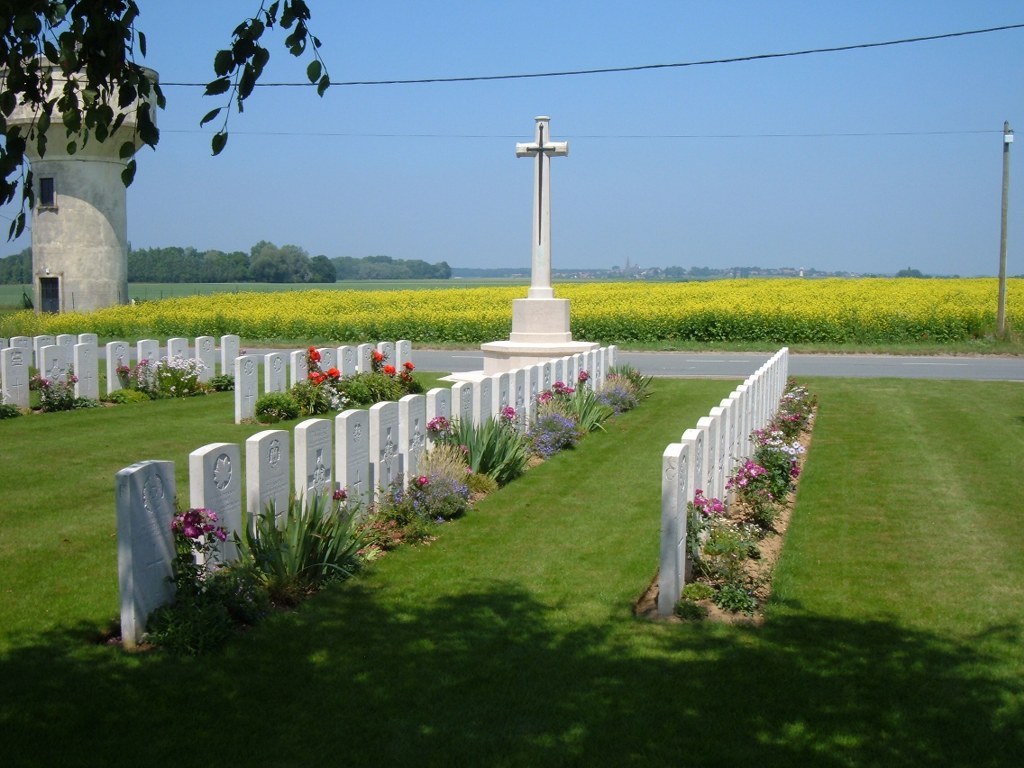 | ||
|
Chapel Corner Cemetery (Photo: CWGC) |
Decoration | ||
| Lance Corporal Claude Warren would have been in receipt - posthumously - of the British War Medal and the Allied Victory Medal. | ||
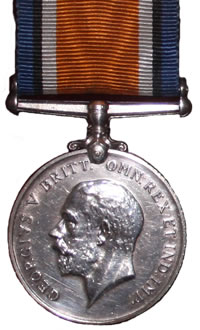 | 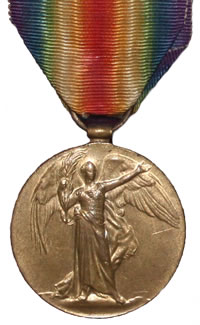 | ||
| British War Medal 1914-18 | Allied Victory Medal |
Commemoration | ||
 In addition to his commemoration on the South Twerton School memorial, Lance-Corporal Claude Warren is commemorated as follows: | ||
|
Bath War Memorial See separate page for details of the Bath War Memorial. Claude Warren's inscription: |
 |
Further Information |
Living relativesIt would be great to hear from any living relatives of Claude Warren.
Please get in touch!If you have any further information on Claude Warren, or want to suggest corrections / improvements for this page, please use the Contact page to get in touch.AcknowledgementMany thanks to Mr David Carter for supplying the photograph of Claude Warren. |